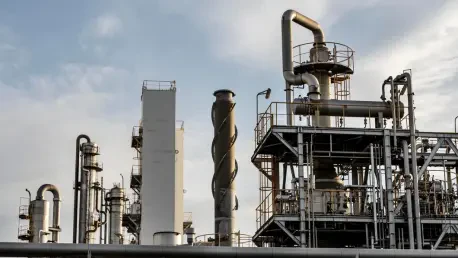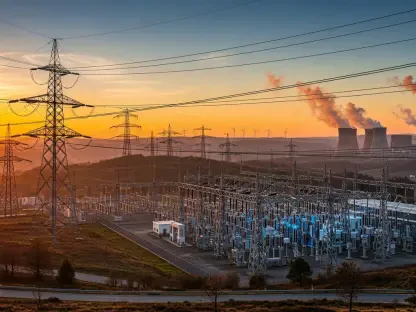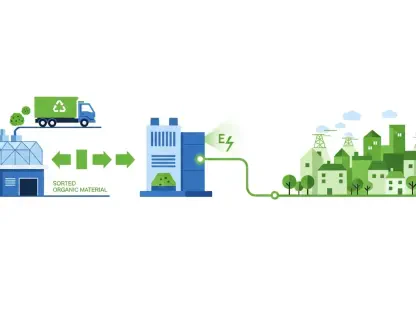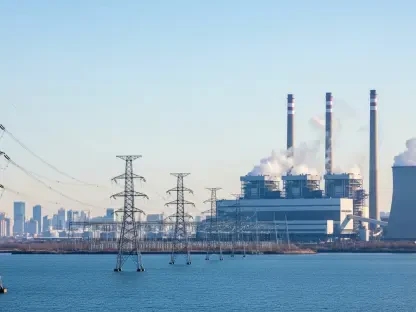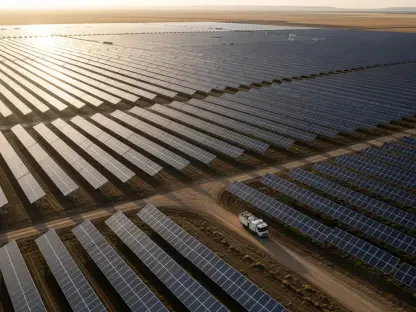What happens when a titan of industry falters at a critical moment? In the heart of Nigeria, the Dangote Refinery—a colossal facility with the capacity to process 650,000 barrels of oil per day—has hit a major roadblock with the shutdown of its gasoline production unit, sending shockwaves through global markets. This isn’t merely a technical glitch; it’s a disruption echoing across continents, tightening fuel supplies in the Atlantic Basin and creating ripples through international trade. The stakes are high, and the world is watching as this African giant grapples with challenges that could reshape energy dynamics for millions.
Why This Shutdown Sends Shockwaves
At the core of this unfolding drama lies the significance of Dangote Refinery’s role in global energy. Designed to be a game-changer, the plant has been positioned as a beacon of hope for Africa’s refining capacity since its inception. Yet, the temporary halt of its 204,000 barrels per day Residue Fluidized Catalytic Cracking Unit (RFCCU) since late August reveals a stark reality: even giants stumble. This outage matters because it disrupts not just local fuel availability in West Africa but also impacts pricing and supply chains as far as the United States, highlighting the interconnected web of global trade.
The broader implications are impossible to ignore. With the refinery aiming to meet both domestic demand and ambitious export goals, such as its first gasoline shipment to New York expected later this month, any hiccup reverberates widely. Market analysts have noted that disruptions of this scale can tilt the balance of supply and demand, affecting everything from consumer prices at the pump to strategic planning by governments. This situation underscores a critical truth: infrastructure in emerging markets often faces steep hurdles, even when backed by immense resources and vision.
Dangote’s Pivotal Place in Energy Trade
Beyond the immediate outage, the refinery’s overarching mission paints a picture of transformation. Since starting operations, it has sought to redefine oil and fuel trade flows by reducing Africa’s reliance on imported refined products. The potential to supply not just Nigeria but also neighboring regions and international markets positions it as a linchpin in energy security discussions. However, operational setbacks like the current one expose the fragility of scaling such a massive endeavor in a region historically underserved by refining infrastructure.
This duality—promise versus challenge—defines the refinery’s journey. Industry observers point out that while the facility’s capacity could revolutionize access to fuel across the continent, persistent technical issues threaten to undermine confidence. As it navigates these growing pains, the global energy sector watches closely, aware that success here could set a precedent for similar projects in other developing regions, while failure might deter future investments.
Unpacking the Outage: What Went Wrong
Diving into the specifics, the shutdown of the RFCCU stems from catalyst leaks and other undisclosed technical problems, with the unit offline since around August 29. According to industry monitor IIR Energy and two anonymous sources, repairs are expected to take at least two weeks, slashing gasoline output at a pivotal moment following the U.S. summer driving season. This isn’t an isolated incident—earlier reports from May flagged similar issues with the unit, predicting reduced rates through October, which compounds the current crisis.
The fallout is measurable and immediate. Tighter supply in the Atlantic Basin has driven a nearly 3% rise in the U.S. gasoline futures crack spread on a recent Wednesday, after an over 8% surge the previous day, reaching the highest level since mid-August. These numbers reflect more than market fluctuations; they signal a strain on fuel availability that could push prices higher for consumers and create logistical headaches for distributors. The incident lays bare the refinery’s struggle to maintain steady production, a challenge that could have lasting effects if not addressed swiftly.
Market Whispers and Expert Takes
Voices from the industry paint a vivid picture of the outage’s broader impact. IIR Energy, alongside insider sources, confirmed the technical failures behind the shutdown, emphasizing the complexity of maintaining such a large-scale operation. One market analyst remarked, “A stumble by a player as big as Dangote creates opportunities for others—U.S. refiners are already seeing tighter margins as a result.” This sentiment is echoed in the profit boosts for American refiners, a direct consequence of reduced competition from the Nigerian facility.
These reactions highlight a domino effect in energy markets. When a major refinery falters, the shockwaves don’t stay confined to its borders; they influence trading floors and boardrooms thousands of miles away. The consensus among experts is clear: disruptions at facilities of this magnitude expose vulnerabilities in global supply chains, prompting a reevaluation of how reliant regions are on singular sources. This outage serves as a stark reminder that energy security is a shared concern, transcending national boundaries.
Charting a Path Through the Crisis
For stakeholders across the spectrum, this disruption is a call to action. Refiners in the Atlantic Basin have a window to boost output and capitalize on short-term margin gains, while policymakers in fuel-dependent areas like West Africa must secure alternative import routes to cushion the blow during repair periods. Consumers, meanwhile, should brace for potential price spikes at gas stations, especially as seasonal demand patterns shift, and stay informed about market developments that could hit their wallets.
Looking ahead, the focus for industry leaders should be on resilience. Investments in maintenance and technical expertise at mega-refineries like Dangote are crucial to prevent recurring outages that destabilize markets. Governments and private players alike need to prioritize diversified supply chains to mitigate risks from such concentrated disruptions. The path forward demands collaboration, ensuring that ambition is matched by execution to safeguard fuel access for millions worldwide.
Reflecting on a Turbulent Chapter
Looking back, the temporary shutdown of Dangote Refinery’s gasoline unit stood as a defining moment that tested the facility’s promise against its operational realities. The two-week downtime, driven by technical failures, not only strained local supply in Nigeria but also influenced fuel margins across the Atlantic, revealing how deeply interconnected global energy markets had become. It was a stark illustration of the challenges inherent in pioneering large-scale infrastructure in emerging economies.
The aftermath pointed toward actionable steps that shaped future strategies. Industry players began advocating for stronger contingency plans, while calls grew louder for enhanced technical support to prevent similar disruptions. The episode served as a catalyst for discussions on diversifying energy sources, urging stakeholders to build buffers against unexpected outages. Ultimately, it highlighted a collective responsibility to balance innovation with reliability, ensuring that the pursuit of energy transformation did not falter under the weight of unforeseen setbacks.
